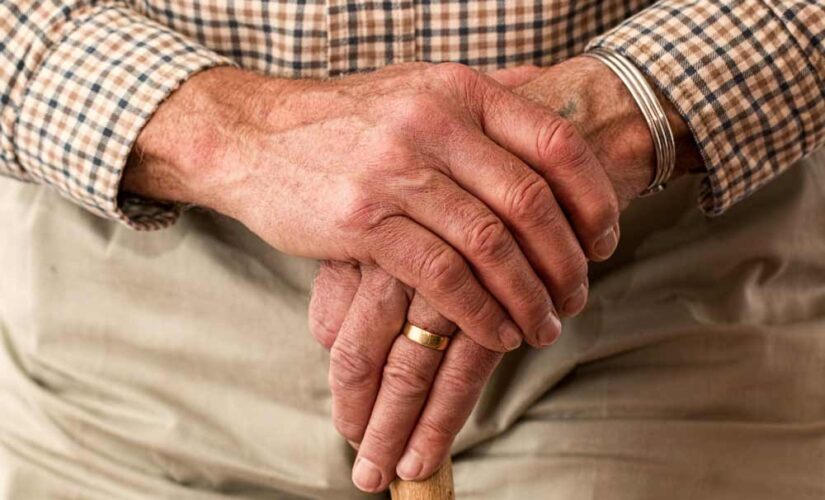Israel has one of the most technologically advanced and highest-quality healthcare systems in the world.…
#03 Medical care is a universal system and affordable

Under the National Health Insurance Law, membership in one of the four following health funds, or Kupot Holim (Patient Funds) is compulsory for all residents of Israel: Clalit, Maccabi, Meuhedet and Leumit. Clalit is the largest of the four, with about half of the population belonging to it. The four Kupot Holim are obligated by the law to offer a minimum package of health services and treatments, known as the “Health Basket” (סל הבריאות; Sal HaBriut ), to all their members. The law established a system of direct oversight of the Kupot Holim by the state, and certain services are under the direct administration of the State, usually by means of the Ministry of Health.
The Health Basket covers all costs of medical diagnosis and treatment in the areas of family medicine, hospitalization (general, maternity, psychiatric and chronic), preventive medicine, surgery (including elective surgery), transplants, treatment for drug abuse and alcoholism, medical equipment and appliances, first aid and transportation to a medical facility, obstetrics and fertility treatment, medications approved under the National Health Basket (which is updated every year), treatment of chronic diseases and paramedical services such as physiotherapy and occupational therapy, and mental healthcare. Medications for serious illnesses that are part of the official “basket of medications” formulary (which is large and updated regularly, but does not include all medications) are covered, though patients must partially pay for these medications with copays: medications included in the basket are covered at rates that vary from 50% to 90%. IVF treatments for the first two children up to the age of 45 and abortions are also covered.
A committee appointed by the health ministry reviews the contents of the health basket on a yearly basis and determines which new treatments will be added to it within the constraints of the annual budget allocated to the basket by the government.
In general, each Kupat Holim allows members to choose a primary care physician and specialists from a list of healthcare providers associated with the fund. Availability of services differs by location, as each of these organizations operate their own medical facilities, including private hospitals.
While the Kupot Holim typically cover medical treatment in Israel, they can fund medical procedures abroad when the procedure in question cannot be obtained in Israel. There is a cap of $250,000 without copay to fund treatment abroad, though that limit can be waived by the Director-General of the Health Ministry.
Members of each Kupat Holim can switch to another once a year. There are six specified dates on which people can transfer, depending on when they signed up for their previous one. In special circumstances, it is possible to petition the Ministry of Health to cancel a change or register earlier than an official date.
The National Health Insurance Law sets out a system of public funding for health services by means of a progressive health tax, administered by Bituah Leumi, or the National Insurance Institute, Israel’s social security organization, which transfers funding to the Kupot Holim according to a capitation formula based on the number of members in each fund, the age distribution of members, and a number of other indices. The Kupot Holim also receive some direct government funding. The government provides the Kupot Holim relatively wide discretion in determining how to spend their public funding, with the condition that the Kupot Holim must guarantee providing the treatments set forth in the health basket as a minimum service to their members.
For the health tax, wage-earners and the self-employed must pay 3.1% of their monthly salary up to 60% of the average prevailing market wage (appx. NIS 6,300 in 2020), and 5% of anything earned above it. Employers are legally obligated to deduct insurance contributions from their employees’ salaries, while the self-employed must arrange payment on their own. Pensioners have contributions deducted from their pensions, as do those receiving unemployment benefits. Those who are not working but have income must pay 5% of their income in health tax, while those who are not working and have no income must pay NIS 104 a month. Only a select few categories of people are exempt from paying health premiums. Dependent minors are exempt. Housewives who do not work are exempt unless they receive a pension or their spouse receives an increment to a pension. Those receiving old-age pension benefits from Bituah Leumi (i.e., most of the elderly people in Israel) pay a reduced flat rate and any additional income they have is exempted from the health tax. In addition, people who immigrate to Israel under the Law of Return, and Israeli citizens who were born abroad or left as minors, and who settle in Israel are entitled to one year of free health insurance if they are not working, subject to some exceptions.
While the vast majority of public health services are covered by the Kupot Holim under the National Health Insurance Law, pre-natal, post-natal, and geriatric care services are run directly by the Ministry of Health.
Government spending on healthcare is about 60% of the total, considerably below the average for OECD countries of 72%.
Although most residents are covered under the National Health Insurance Law, some exceptions apply to people who receive state-funded healthcare through other means. All soldiers except those who were found medically unfit for service but volunteered are not covered by their Kupat Holim during their military service, but receive healthcare through the military healthcare system. Upon leaving the military, soldiers rejoin their previous Kupat Holim. Disabled veterans are covered by the Ministry of Defense. In addition, some disabled World War II veterans and victims of the Nazis are eligible for certain types of health benefits from the Ministry of Finance. New immigrants who have not yet registered with a Kupat Holim and are in immediate need of healthcare can apply for coverage from the Public Ombudsman of the Ministry of Health.
Rights under the National Health Insurance Law
- Every Israeli citizen is entitled to health care services under the National Health Insurance Law.
- Every resident has a right to register as a member of a Kupat Holim of his/her choice, free of any preconditions or limitations stemming from his/her age or the state of his/her health.
- Every resident has a right to receive, via the Kupat Holim of which she or he is a member, all of the services included in the medical services basket, subject to medical discretion, and at a reasonable quality level, within a reasonable period of time and at a reasonable distance from his/her home.
- Each member has a right to receive the health services while preserving the member’s dignity, privacy and medical confidentiality.
- Every Israeli resident has the right to transfer from one Kupat Holim to another.
- Each member has a right to select the service providers, such as doctors, caregivers, therapists, hospitals and institutes, from within a list of service providers who have entered into an agreement with the Kupat Holim to which the member belongs, and within the arrangements in place for the selection of the service providers, and which the Kupat Holim publishes from time to time.
- Each member has a right to know which hospitals and institutes, and other service providers have service agreements with the Kupat Holim, and what are the provider selection processes at the Kupat Holim.
- Each member has a right to see and to receive a copy of the Kupat Holim regulations.
- Each resident has a right to receive from the Kupat Holim complete information concerning the payment arrangements in place with the Kupat Holim for health services as well as the Kupat Holim’s Supplementary Insurance plans.
- Each member has a right to complain with the Public Inquiries commissioner at the medical institute that treated the member, to the person in charge of investigating member complaints at the Kupat Holim of which s/he is a member, or to the complaints commissioner for the national health insurance law in the Ministry of Health.
- Each member has a right to file suit at the district labor court.



